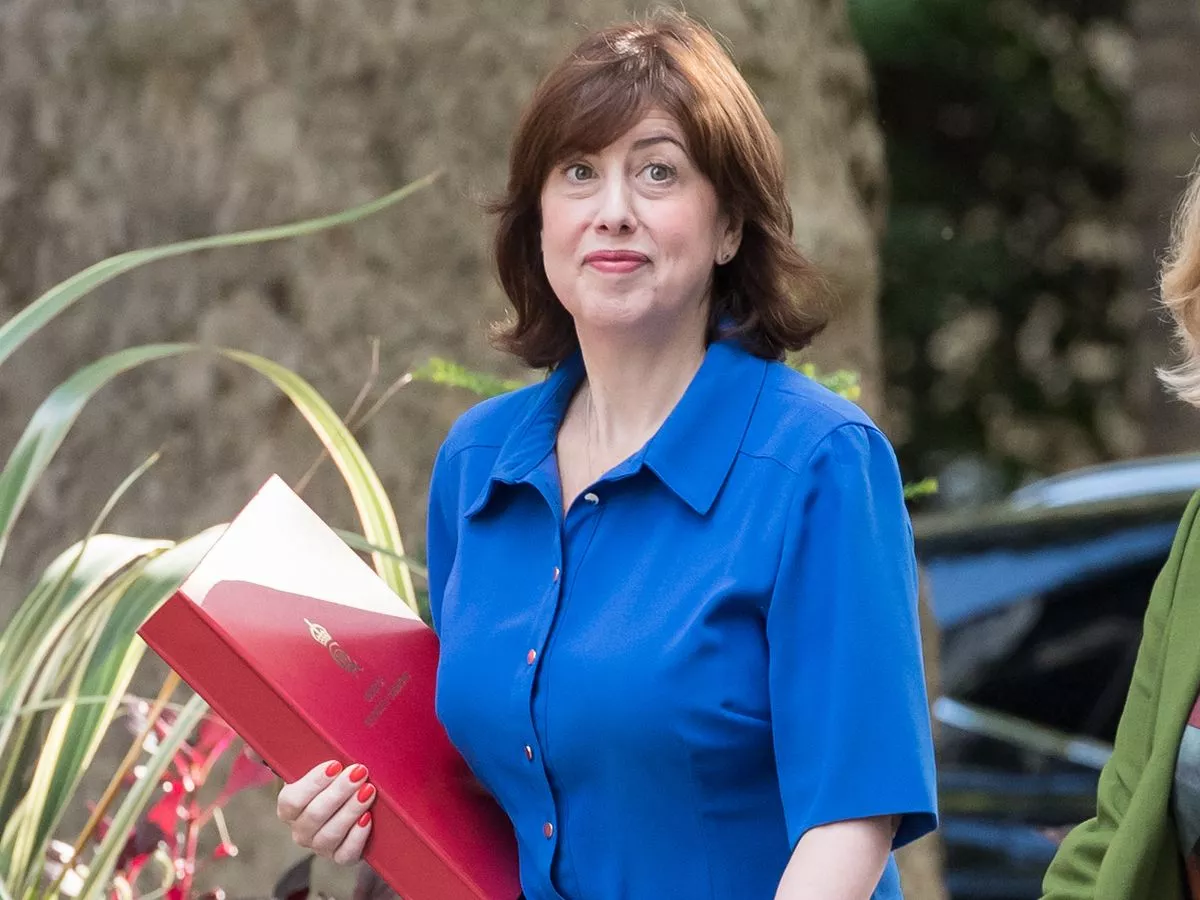
The races for the District 1 and District 5 seats in this year’s elections did not include any primaries but do feature contested races in the general election.
In District 1, Councilwoman Sharon Hightower is facing a challenge from Crystal Black while the District 5 race is being contested between Councilwoman Tammi Thurm and Jeanette Davidson-Mayer.
Candidates from both races responded to News & Record questionnaires asking about housing issues.
The general election will be held Nov. 4.
District 1
Crystal Black
Do you support City Manager Trey Davis’ plan for adding 10,000 new homes by 2030? Why or why not?
Yes, I support the goal of adding 10,000 new homes by 2030, but the success of this plan depends entirely on how it’s implemented.
Building more housing is not enough. We must ensure the right types of homes are built and equitably distributed among all districts.
It also has to be accessible to people at all income levels in all areas of Greensboro. We must also address the existing housing that is in dire need of repair or replacement.
Greensboro is growing, and more housing is needed to prevent displacement, manage rising costs and welcome new residents.
But if this housing is concentrated in already overburdened neighborhoods, or priced out of reach for working families, seniors, or first- time buyers, then we’re not solving the real problem.
We’re just reinforcing existing inequalities.
To truly succeed, the 10,000 Homes Plan must:
• Prioritize affordable housing options across the city.
• Include mixed-income and multi-family developments that are integrated into thriving, diverse communities.
• Preserve and upgrade existing affordable housing stock.
• Ensure an equitable distribution of new housing so that no single district bears the burden.
• Work in tandem with transit, infrastructure and Guilford County schools to ensure that neighborhoods achieve sustainable growth.
I support the vision, but I will push for equity, accountability and community input every step of the way.
Growth without fairness is not progress. We must build not just more homes, but stronger, more inclusive communities.
What specific steps would you take to ensure Greensboro has housing that is affordable for middle-class and working people?
To ensure Greensboro has housing that is truly affordable for middle-class and working people, we must move beyond catchy slogans and implement clear, strategic actionable plans.
I encourage:
• Policies that require new developments, especially those receiving city incentives, to include a percentage of affordable and workforce housing units.
• Expanding funding and streamlining the processes for nonprofits and community land trusts that are building and preserving affordable housing.
• Prioritizing surplus city-owned land for mixed-income housing, with affordability built into the planning process.
• Helping working families become homeowners by investing in down payment grants and rehab programs, especially for aging homes in East Greensboro and other legacy neighborhoods.
• Strengthening tenant protections and investing in maintaining naturally occurring affordable housing before it’s lost to displacement or gentrification.
• Requiring regular reporting on affordability metrics, displacement risks, and housing access across income levels, and involving residents in the planning.
Housing is more than shelter. It’s the foundation of stability.
We must act urgently and intentionally to keep Greensboro livable for the people who make it work every day.
Members of the current council have said the city will need to increase density across the board in order to overcome the housing shortage. Do you agree? Why or why not?
Yes, I agree that increasing density is part of the solution to Greensboro’s housing shortage, but it must be done strategically, equitably, and with strong community engagement.
Higher density can help us build more homes, reduce historical sprawl and make better use of existing infrastructure.
It can also support more walkable neighborhoods and a wider variety of housing options like duplexes, townhomes and accessory dwelling units, that are more affordable for working families, young professionals and seniors.
But increasing density “across the board” must not become code for placing the heaviest burden on historically underserved areas like East Greensboro and District One.
These communities have carried their fair share of low-cost, high-density housing, far too long, without the investment needed in amenities, infrastructure, or green space to thrive.
Greensboro needs to move forward focusing on balanced growth across the city and welcome new density in high-opportunity areas that have traditionally resisted it.
Every neighborhood has a role to play in solving our housing challenges, not just a few.
I would support a citywide housing strategy that includes:
• Community-involved planning.
• Requirements that new density includes affordability and green space.
• Public investment in infrastructure to support growing neighborhoods.
Smart density can make Greensboro stronger, but only if we do it with fairness, care, and transparency.
Sharon Hightower
Do you support City Manager Trey Davis’ plan for adding 10,000 new homes by 2030? Why or why not?
I do support the plan to increase the housing stock for all income levels that include diverse housing types, both new builds and rehabs of older structure and working with small developers for acquisition of infill lots in redevelopment areas.
What specific steps would you take to ensure Greensboro has housing that is affordable for middle-class and working people?
I recommended for the fiscal budget 2025 increasing the down payment amount that will bridge the gap need as house prices have risen and been challenging for the missing middle to acquire.
We should also lower the asset limit requirement for city loan qualification to attract more applicants.
Members of the current council have said the city will need to increase density across the board to overcome the housing shortage. Do you agree? Why or why not?
The East/Southeast will start to experience a housing boom with the largest job announcement in Greensboro history.
Therefore, we need to explore how responsible density can be accomplished in a way that supports sustainable development, community well-being and addresses environmental goals.
Strategic planning with community input and developers involves conversations about locations where walkable neighborhoods can be created.
One type could be doing a mixed-used model that includes residential and commercial for easier access to services and reduces transportation needs.
This would be an ideal solution for limited land use in underserved areas where diverse housing types would be incorporated with quality food access.
District 5
Jeannette Davidson-Mayer
Do you support City Manager Trey Davis’ plan for adding 10,000 new homes by 2030? Why or why not?
The city manager’s Road to 10,000 is an intriguing plan that requires complete transparency.
How can we utilize the existing infrastructure effectively? Why are permit costs increasing during this process? How can the city collaborate with contractors, developers, and landowners to create affordable housing without hindering progress?
There are many questions that need answers after reviewing this plan.
The core idea of the plan is well-intentioned. However, concerns arise during implementation, leading me to believe the city might seek to profit from those developing affordable housing.
We need a clear, supportive development plan that addresses each step.
This includes reviewing policies and procedures that may restrict, delay or raise costs.
Engaging private land developers in the city master plan and incorporating neighborhood input is essential. Honestly, the city’s website about this process feels like a political run-around.
My background in a military family that has served our country offers me a diverse perspective that can benefit our city and community, unlike my opponent, who has been in office for 8 years. I have served the city council and have extensive experience working with community leadership to achieve positive outcomes.
What specific steps would you take to ensure Greensboro has housing that is affordable for middle-class and working people?
Affordable housing is generally defined as the occupant not spending more than 30% of their earned income on mortgage, rent, utilities, and property taxes.
Currently, the average Greensboro resident spends 30%-50%, and with our annual rising taxes, homeowners and renters are wondering how they are going to keep paying on their homes or keep them.
We need to clean up our budgets before increasing taxes. Guilford County as a whole pays higher property taxes than comparable counties in our state, and our county has a significantly lower income bracket.
Members of the current council have said the city will need to increase density across the board to overcome the housing shortage. Do you agree? Why or why not?
Increasing density before reviewing one’s own policies and procedures is like putting the cart before the horse.
We need to review what is holding us back. What is preventing us from progressing forward with affordable housing and finding new pathways?
Tammi Thurm
Do you support City Manager Trey Davis’ plan for adding 10,000 new homes by 2030? Why or why not?
I do support the plan for adding 10,000 new homes by 2030.
We currently have a severe shortage of homes and this will get worse with the addition of people moving into our city.
In addition, by increasing the inventory of attainable housing, at all levels of income, prices will stabilize so that the workforce can live, work, and play in Greensboro.
More housing is good for the whole community.
What specific steps would you take to ensure Greensboro has housing that is affordable for middle-class and working people?
We are looking at how the city can help reduce the building costs for developers by streamlining our permitting processes and increasing efficiency.
By reviewing our processes, we may have the ability to shorten plan review lead times for builders – time is money.
The city could possibly assist with infrastructure to support infill construction of workforce housing. We need to review our zoning to ensure that we are not inadvertently adding to the cost of construction.
Members of the current council have said the city will need to increase density across the board in order to overcome the housing shortage. Do you agree? Why or why not?
I agree with the need for infill construction and increased density.
Infrastructure is a huge cost of construction. If we are trying to drive down the cost and encourage the building of housing, maximizing investment in infrastructure is one way that we can impact the cost of housing.
This is not a Greensboro specific issue.
Across the country, municipalities are wrestling with a severe housing shortage, which is affecting mostly young people, our children and grandchildren.
Finding creative ways to increase housing supply is good for our families, our community and generations to come.
kevin.griffin@greensboro.com
Get Government & Politics updates in your inbox!
Stay up-to-date on the latest in local and national government and political topics with our newsletter.
* I understand and agree that registration on or use of this site constitutes agreement to its user agreement and privacy policy.
Kevin Griffin
Get email notifications on {{subject}} daily!
Your notification has been saved.
There was a problem saving your notification.
{{description}}
Email notifications are only sent once a day, and only if there are new matching items.
Followed notifications
Please log in to use this feature
Log In
Don’t have an account? Sign Up Today



